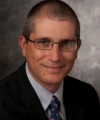Economic Freedom of the World: 1998-1999 Interim Report
More than a decade ago, Michael Walker, the Executive Director of The Fraser Institute in Vancouver, Canada, and Nobel laureate Milton Friedman organized a series of conferences with the objective of clearly defining and measuring economic freedom. They were able to attract some of the world's leading economists including Gary Becker, Douglass North, Peter Bauer, and Assar Lindbeck to participate in the series and provide input for the study.
These conferences eventually led to the publishing of Economic Freedom of the World: 1975-1995 (written by James Gwartney, Robert Lawson, and Walter Block) and the organizing of the Economic Freedom Network, a group of institutes in some 50 different countries seeking to develop the best possible measure of economic freedom.
The core ingredients of economic freedom are personal choice, protection of private property, and freedom of exchange. Individuals have economic freedom when: (a) property acquired without the use of force, fraud, or theft is protected from physical invasions by others and (b) such property can be freely used, exchanged, or given to another as long as the owner's actions do not violate the identical rights of others. Like a compass, this concept of economic freedom has directed our work.



